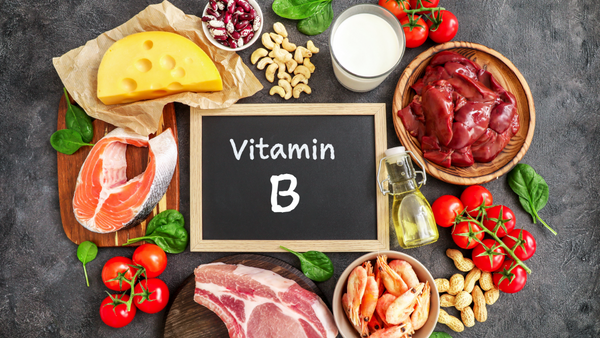Omega-3 fatty acids are of enormous health importance. They are the reason why fish is so healthy . But why exactly are they so important to us?
At the end of the article there is a voucher for our Vegan Omega-3 waiting for you. It's worth reading on!
What are Omega-3 fatty acids?
Omega-3 fatty acids are essential fatty acids that we must consume through our diet.
Fatty acids are divided into saturated and unsaturated fatty acids . In saturated fatty acids, the individual carbon atoms are linked together by single bonds. You can imagine them as a straight line.
(There is a little gift waiting for you further down in this article. It's worth reading on).
However, unsaturated fatty acids contain one or more double bonds. If they have several double bonds, they are called polyunsaturated fatty acids. The fatty acids have a kink where the double bonds are. They therefore do not form a straight line, but rather have twists.
Omega-3 fatty acids are unsaturated fatty acids. Three important omega-3 fatty acids are alpha-linolenic acid (ALA), eisosapentaenoic acid (EPA) and docosahexaenoic acid (DHA) . EPA and DHA are particularly important for the human body.
Plant-based foods (except algae) contain only ALA. Animal sources, on the other hand, provide EPA and DHA. ALA can be converted into DHA and EPA, but the conversion rate is very low. For this reason, animal omega-3 is more valuable than plant-based sources.

The effect of omega-3 fatty acids in the body: Why are they so important?
Omega-3 fatty acids are extremely important for our cells . Every single cell in our body contains these fatty acids because they serve as building blocks.
Omega-3 fatty acids are also of great health importance because they have anti-inflammatory effects. [1] Chronic inflammation promotes the development of many diseases, such as diabetes, cancer, autoimmune diseases and cardiovascular diseases .
However, the anti-inflammatory effect is not only determined by the amount of omega-3 we consume, but also by the ratio of omega-3 to omega-6 fatty acids . This is because both are used in the body by the same enzymes, so they compete with each other. In the case of omega-3 fatty acids, the enzyme products are anti-inflammatory, while in the case of omega-6 fatty acids, they are pro-inflammatory.
Omega-3 is also important for the eyes : it is important for light absorption and the transmission of light signals to the brain.
In addition, the immune system also needs omega-3 fatty acids to function. For this reason, a deficiency in these fatty acids appears to promote autoimmune diseases.
Omega-3 fatty acids are particularly important for the brain : Our brain is made up of 60% fat and omega-3 fatty acids make up a large part of this. [2] They facilitate the transmission of nerve signals and support the formation of BDNF - an important growth factor in the brain. [3]

The European Food Safety Authority confirms the following effects of omega-3 fatty acids in its Health Claims Regulation :
They wear
- contributes to the maintenance of normal cholesterol levels in the blood.
- to normal heart function in
- to maintain normal blood pressure in
- to maintain normal blood triglyceride concentrations in
- to maintain normal brain function in
- to maintain normal vision in
Omega-3 daily requirement: This is how much you need
The exact daily requirement of omega-3 fatty acids is not known. It depends on factors such as total energy intake and the consumption of omega-6 fatty acids . Certain illnesses and physical activity can also influence the requirement.
The German Nutrition Society (DGE) specifies a daily requirement of 0.5% of the energy consumed . With an energy intake of 2,000 kcal 10 Kcal corresponds to approximately 1.1 g . This refers to ALA. [4]
In addition, the European Food Safety Authority (EFSA) recommends consuming 250 – 500 mg of omega-3 in the form of EPA and DHA daily. [5] It classifies up to 5g daily as harmless and safe. [6]
However, since today's diet is very rich in omega-6 fatty acids, the need is probably higher.
In our ancestors in the Stone Age, the omega-6 to omega-3 ratio was estimated to be 1:1 . According to current knowledge, the ratio should be less than 5:1 . [7] In fact, in the modern diet, it is often up to 15:1 ! [8] This is not necessarily due to too little omega-3, but rather to excessive consumption of omega-6-rich foods, such as sunflower oil.
Omega-3 rich foods – how to meet your needs
Omega-3 fatty acids are found in both plant and animal foods. However, you must remember that plant foods contain ALA, which must first be converted into EPA and DHA. Since this conversion rate is very poor in humans , you must eat significantly more omega-3-rich foods if you meet your needs through plant sources. Since this is difficult to achieve, you should supplement with DHA and EPA.
The best plant-based sources of omega-3: [9]
Flaxseed: 22.8 g
Linseed oil: 53.3 g
Chia seeds: 17.5 g
Walnut oil: 10.4 g
Walnuts: 9 g
The best animal sources of omega-3:
Mackerel: 5.1 g
Salmon: 2.5 g
Herring: 2.4 g
Sardines: 1.5 g
Anchovies: 1.5 g

Omega-3 dietary supplements
If you don't eat fish several times a week, or better yet, every day, it's difficult to meet your omega-3 needs through food. If you don't eat fish or are vegan , a dietary supplement with EPA and DHA is highly recommended. There is also plant-based omega-3 from algae . The omega-3 algae oil from Viktilabs provides EPA and DHA in a ratio of 1:3, which is particularly inexpensive. Krill oil from crustaceans also provides and is rich in EPA and DHA.
Conclusion: Omega-3 fatty acids fulfill many important functions
Omega-3 fatty acids are essential for humans . They serve as a building block for our cells and have an anti-inflammatory effect . Both plant-based and animal-based foods contain omega-3. However, animal EPA and DHA are much more easily absorbed than plant-based ALA. For this reason, it is particularly important for vegans and people who eat little fish to supplement EPA and DHA with a high-quality omega-3 dietary supplement .
Great that you have refreshed your knowledge about Omega 3 fatty acids with this article and now understand how important these essential fatty acids are for our body.
We at +Viktilabs have provided a 15% coupon for our Omega 3 for all readers of this article and thank you for your attention.
Simply copy the voucher code OMEGA3-15+V and enter it at checkout.
Here you can find the article about Omega-3 deficiency and Click here to read the article about the best sources of omega-3 foods.
[1] https://pubmed.ncbi.nlm.nih.gov/25149823/
[2] https://pubmed.ncbi.nlm.nih.gov/22254110/
[3] https://pubmed.ncbi.nlm.nih.gov/15672635/
[4] https://www.dge.de/forschung/referenzwerte/fett/
[5] https://efsa.onlinelibrary.wiley.com/doi/abs/10.2903/j.efsa.2012.2815
[6] https://www.efsa.europa.eu/de/press/news/120727
[7] https://www.bfr.bund.de/cm/343/muessen_fischverzehrer_ihre_ernaehrung_durch_fischoel_kappen_ergaenzen.pdf
[8] https://pubmed.ncbi.nlm.nih.gov/12442909/
[9] https://nutritiondata.self.com/foods-000140000000000000000-w.html

















